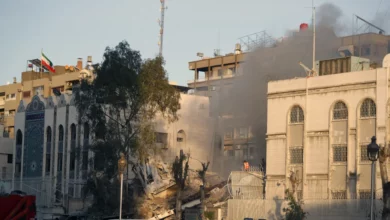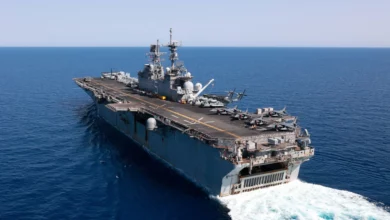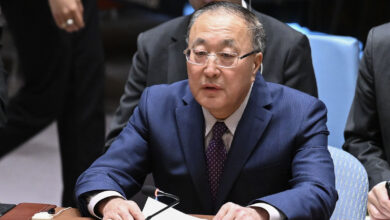Syrian villagers pulled 13 bodies from a mass grave near the southern city of Deraa on Monday, residents said, and thousands joined a night-time march in a Damascus suburb demanding the overthrow of the government.
Deraa residents say hundreds of people have been missing since tanks and soldiers moved in last month to crush the cradle of opposition to President Bashar al-Assad's 11-year rule.
They said villagers digging in farmland in the outskirts of the city uncovered the decomposed bodies of Abdullah Abdul Aziz Aba Zaid, 62, and four of his children.
The villagers also found the bodies of a woman, a child and six men, all unidentified, residents said. It was not clear when they died, but Deraa residents say dozens of civilians were killed during the military assault on the city's old quarter.
Syrian and international rights groups say Syrian forces have killed at least 700 civilians across the country since the first protests broke out in Deraa on March 18.
The report on the mass grave could not be confirmed independently.
Thousands of demonstrators marched through the Damascus suburb of Saqba on Monday night at the funeral of Ahmad Ataya, who died of wounds inflicted when security forces fired at a pro-democracy rally in the capital last month.
A witness said the demonstrators marched at night to avoid the tough security measures that are in force during the day. It was the biggest protest in the Damascus outskirts since a security crackdown three weeks ago.
Authorities have blamed most of the violence during the wave of protests on armed groups backed by Islamists and outside powers, who they say have killed more than 120 members of the security forces.
Witnesses in Deraa said tanks were still positioned at main city junctions and in the outskirts, but authorities had shortened the curfew by three hours, allowing people out on the streets until 5:00 pm.
The official Syrian news agency said Assad met a delegation from Deraa and they discussed the "positive atmosphere there as a result of cooperation between the residents and the army."
Tanks deploy near border
Further north, at least 15 tanks deployed around Arida, near the border town of Tel Kelakh which troops entered on Saturday after protests erupted against Assad, and their arrival prompted dozens of families to flee into neighboring Lebanon.
An activists' protest group said at least seven civilians were killed in Tel Kelakh on Sunday when troops shelled the town and sniper fire killed one civilian on Monday, raising the death toll in the army's assault since Saturday to 12.
The Syrian state news agency said five soldiers were killed in confrontations with armed groups in Tel Kalakh.
One resident reported intermittent shelling of Tel Kelakh and bursts of machine gun fire on Monday, but the army appeared not to have advanced beyond the outskirts.
"Tel Kelakh is a ghost town. There are no doctors. Pharmacies are shut. Snipers are on the roof of the main hospital. Phones, water and electricity are cut," Mohammad al-Dandashi told Reuters from the town by satellite phone.
A few families from Hilat, another border village, streamed into Lebanon on Monday as did two wounded civilians from Tel Kelakh who were seeking medical care, family members said.
Lebanese army reinforces border
For the past two months Syrian soldiers and police have been trying to quell demonstrations across the country calling for Assad's overthrow.
They have tended to crack down on a flashpoint area for several days, using tank and rifle fire and mass arrests to subdue it, and then move on to another area.
Troops backed by armor have now deployed in or around towns and villages across the southern Hauran plain, the central province of Homs and areas near the coast. Security forces have also tightened their grip on Damascus and its suburbs.
The Lebanese army said it had sent reinforcements to the border, set up checkpoints and started intensive patrols to prevent "infiltration activities on both sides."
International media organizations are largely banned from Syria, making it difficult to verify accounts of events there.
Assad, who trained as an ophthalmologist, has used a mixture of repression and promises of reform to stem the protests, which were inspired by uprisings across the Arab world.
The United States and the European Union have imposed targeted sanctions on Syrian officials and condemned the violence used to suppress dissent.
Authorities said Assad intended to launch national dialogue talks, an offer rejected by opposition leaders and the main activists' protest group, who say security forces must first stop shooting protesters and political prisoners must be freed.




